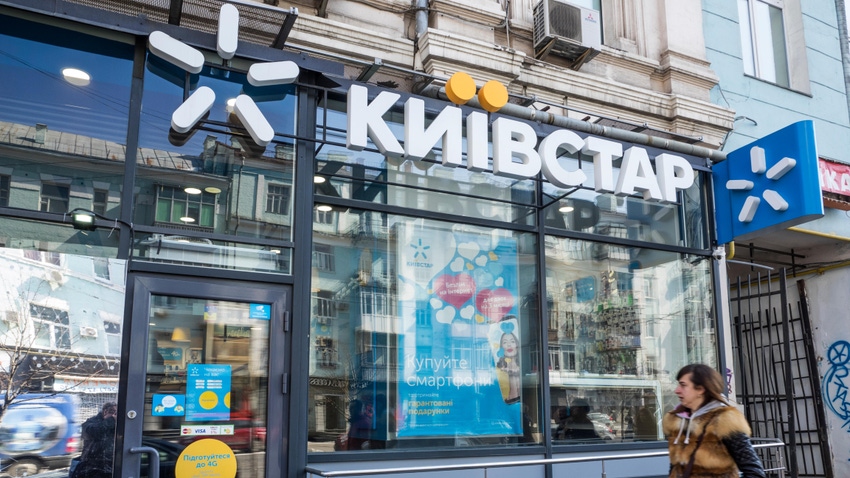Huawei removal at Kyivstar not discussed with Pompeo
Kyivstar is currently not discussing restricting use of equipment from Chinese vendors with Mike Pompeo, who has recently been appointed to its board, says its CTO. The Ukrainian operator continues to expand its network while dealing with war-related disruptions.

Kyivstar has not discussed removing Huawei equipment with former US Secretary of State Mike Pompeo, who has recently joint its board, the operator's CTO, Volodymyr Lutchenko, told Light Reading at the recent Mobile World Congress.
After more than two years of war in Ukraine, talk of restricting vendors is likely not the operator's most pressing concern. Yet, the question seems pertinent in light of Pompeo's appointment, given he has been an ardent critic of the Huawei investments and has advocated for its bans at home and abroad.
"Yes, Mr. Secretary has joined our board. We have met several times but vendors' presence was not discussed," Lutchenko said, adding that currently all Ukrainian operators use equipment from Chinese vendors in both mobile and fixed networks.
Kyivstar's CEO, Oleksandr Komarov, told Interfax-Ukraine last year that the operator would look into the possibility of limited replacement of Chinese vendors in the most critical network elements. His statements came after Ukraine's National Security and Defense Council started discussing possible restrictions on Chinese vendors, and related to compliance with any potential measures that may be adopted. Lutchenko, nevertheless, noted no such legal restrictions had been imposed.
The company has no shortage of other challenges to tackle given the ongoing war, which has brought on both enemy fire and hackers.
Cyberattacks cause significant network disruptions
Last December, the Kyivstar faced an unprecedented cyberattack that left customers without access to Internet, voice calls and messaging, with disruptions lasting for days. It is thought to have been carried out by a hacker group affiliated to the GRU, Russia's military intelligence agency, which managed to infiltrate its network.
Lutchenko confirmed to Light Reading that the attack wiped out an entire core; an official with the country's security services also previously shared this with Reuters. Lutchenko did, however, slightly push back against statements that the hackers had full access to the network for some time: "they didn't have full access to the network, they had enough access to destroy the virtual environment." At the same time, he admits the company is still investigating exactly how the hackers gained access.
The operator's parent company, VEON, has since said the outage will cause a loss of $95 million in annual revenues at Kyivstar, mainly due to customer loyalty measures taken after the attack. Lutchenko noted that there has been minimal cost related to the affected hardware, because around 95% to 97% could be restored.
He added that the network was restored very quickly, mainly thanks to round-the-clock work by his team and "huge support" from vendors. Normally, he said "it takes like six months to make such a network up and running. And we did it almost in three days."
When asked about which measures Kyivstar can take to shore up defenses against future attacks, he pointed out that threats are constantly evolving. "You have to be ready for anything new, because after an attack you can close identified gaps or potential deficiencies but in the next days, next month, next year, there will be new gaps and the art of cybersecurity is to be up to date for every moment," he said.
"That's the biggest difficulty. Why? Because you have to win every fight in this war and [for] your enemies it's enough to win only one fight," Lutchenko added.
Diminishing skilled workforce
Kyivstar has robust experience of cyberattacks. Lutchenko noted that the operator faces thousands of attacks of different kinds every day, and has been in talks with telcos in other countries to help them improve their defenses.
Physical damage to the network has been limited because the frontline has not been moving significantly. However, the operator is seeing occasional site and network damage on the Russian border and near the frontline from both rocket and drone attacks that are targeting mobile sites specifically, added Lutchenko.
"Yesterday we had two or three sites damaged, there's a lot of that. During the last two years, we have lost three regional core sites," he said, adding however that this has not had a big effect on service provision because the company had prepared for this. The cyberattack had a much bigger impact on the network than any physical damage, he explained.
He also points to a lack of qualified staff as the biggest challenge Kyivstar is facing at the moment, due to employees being called up for the army. He adds that while the company has the ability to shield some of them, this only extends covers up to 50% of staff.
Expanding coverage
Despite facing problems that no other European operator has had to deal with, Kyivstar is continuing to work on expanding its network. It has, for example, begun retiring its 3G network, with sunsetting complete in two cities as part of a proof-of-concept.
Lutchenko says there were "no major issues" with the shutdowns, claiming "all the results are perfect." He hopes that the regulator will move forward with retiring 3G and create a roadmap together with mobile operators.
The company continues to work on improving 4G coverage, which Lutchenko says is the main focus of the $600 million investment plan Kyivstar announced last year. "Right now we have 95% of the population covered and we would like to extend it more, up to 98% … and to increase our geographical coverage," he says.
He points to national and international roads, as well as villages with populations over 2,000 as priority areas. The idea is to improve access to services like education and remote medical services.
At the same time, Kyivstar is planning to conduct a PoC open RAN deployment with Rakuten in one Ukrainian city. The project will focus on testing hardware, as well as what Lutchenko calls the full chain of cooperation, which includes contract preparation, price negotiation, working with local partners and logistical challenges such as delivery to Ukraine.
Some of the $600 million investment package will also go toward 5G deployment. Ukraine has yet to hold the required spectrum auctions after they were put on hold because of the full-scale Russian invasion. It has, however, taken some steps towards deploying 5G.
Lutchenko says Kyivstar is negotiating with the government about the possibility of test 5G deployments in select Ukrainian cities. He adds, however, that the scope, frequencies and locations have not yet been defined.
UPDATE: The story and headline have been updated after discussions with VEON, Kyivstar's parent company, to better reflect its position on the use of Huawei equipment.
Read more about:
EuropeAbout the Author(s)
You May Also Like




_International_Software_Products.jpeg?width=300&auto=webp&quality=80&disable=upscale)







